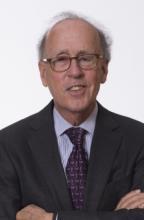Can Navalny Save Russia?
MOSCOW – In 1811, assessing the possibility – or, rather, the impossibility – of Russia ever undergoing a Western-style transformation, the diplomat and counter-Enlightenment philosopher Joseph de Maistre famously wrote, “Every nation has the government it deserves.” Fourteen years later, the Decembrist revolt – a movement of poets and army officers to topple Czar Nicholas I and establish a constitutional monarchy – seemed to refute de Maistre’s claim. Yet the revolt was suppressed, and the Decembrists were executed or exiled. One doomed officer famously declared, “You can’t hang us all.”
Russia’s brutal twentieth century, with its totalitarianism and gulags, nearly proved that officer – and de Maistre – wrong. No one “deserves” to be ruled so monstrously. An estimated 20 million Russians perished under Stalin’s rule, and the rest were paralyzed with terror.
The twenty-first century has been kinder to Russians, at least so far. But, while terror and famine have been absent, many of the oppressive tactics of the past have been revived under Vladimir Putin’s misrule, now in its 14th year.
Since 2003, when the billionaire oil oligarch Mikhail Khodorkovsky was arrested for alleged embezzlement and fraud – after he dared to support Putin’s political opponents – Russia’s elite has been largely brought to heel. None of them envisaged rotting in a labor camp like Khodorkovsky. Under Putin, it seems, de Maistre’s maxim has received a new lease on life.
Then in 2011, massive protests against Putin and his party of “crooks and thieves” erupted, and Alexei Navalny, who coined that epithet, became the face of Russia’s opposition. Navalny, a 37-year-old anti-corruption lawyer, has been a thorn in Putin’s side ever since. Recently, he announced that he has presidential ambitions; in the meantime, he is seeking to become the mayor of Moscow (arguably the second most important political post in Russia).
The mayoral campaign is now in full swing, with the election on September 8 the first in Moscow in ten years, as Putin had simply been appointing loyalists as mayors and governors throughout the country. The incumbent mayor, Sergey Sobyanin, who has the full support of the Kremlin political-media machine, has been receiving personal-approval ratings above 90% in recent opinion polls. But Navalny’s approval ratings are not far behind, at 80%, and he has achieved them entirely on his own.
Navalny’s candidacy received a recent boost when he became a convicted criminal, following a trial that resembled Khodorkovsky’s in terms of blatant political manipulation. Accused of fraud, Navalny received a five-year prison sentence for allegedly embezzling from Kirovles, a provincial timber company. But, in an unusual twist, Navalny was released from custody pending appeal of his conviction only a day after it was handed down.
That, some say, was because his supporters immediately took to the streets. The likelier motivation is that Putin decided to let the election play out, relying on Navalny to lose. In that case, Sobyanin, who was appointed in 2010, would gain the legitimacy that he has lacked until now, and the opposition movement would be discredited in the capital, whose residents form the core of Navalny’s political base.
But what if Navalny is elected? Would his sentence be commuted, postponed, or annulled? Would he go to prison, Muscovites’ choice notwithstanding?
In a new challenge to de Maistre’s maxim, almost 200 young businessmen overcame the fear inspired by Khodorkovsky’s fate and donated funds to Navalny’s campaign. Thirty-seven of them signed what they called a new “social contract.” According to their manifesto, they “expect Navalny to defend the rule of law, support independent courts, and ensure that officials are really accountable before society.” They are investing “reputational, financial, organizational, and other resources” in a man who promises to hire competent advisers and free the city – and eventually the country – from endemic corruption and abuse of power.
Most of these young entrepreneurs have risen within the “knowledge economy.” They include the inventor of a cloud-computing service, the founder of an online luxury-goods business, a developer of new banking technologies, and the creator of a social-networking platform for doctors. All of them have good educations, and many hold American business degrees.
Many of these business leaders would have preferred to stay out of politics; but Russia’s poor education system, economic feudalism, official homophobia, and other festering problems have left them no choice. And Putin himself has become an insufferably vulgar embarrassment.
To be sure, Navalny’s backers could emigrate comfortably; but, invigorated by their candidate’s campaign, they are willing to see whether he can make a difference. Indeed, Navalny has become the only hope for competitive politics in Russia.
At the same time, Navalny’s unapologetic nationalism makes many people nervous. And, while Russian leaders may start out as reformers, they do not often remain so. Boris Yeltsin began the 1990’s as a courageous democrat, only to end up a corrupt, bibulous buffoon, while Putin initially vowed to bring law and order to the post-Yeltsin chaos.
So Moscow’s mayoral election is a moment of truth for Navalny, the business leaders investing in his campaign, all Muscovites, and perhaps Russia as a whole. As in the time of the Decembrists, anyone in Russia can suffer from overweening government power, regardless of political belief. Fear and apathy have become riskier than taking a stand.
But the question remains: Come September 8, can Navalny and his supporters change Russia’s political culture of fear, or was de Maistre right after all?
Copyright: Project Syndicate, 2013.
www.project-syndicate.org
This article is brought to you by Project Syndicate that is a not for profit organization.
Project Syndicate brings original, engaging, and thought-provoking commentaries by esteemed leaders and thinkers from around the world to readers everywhere. By offering incisive perspectives on our changing world from those who are shaping its economics, politics, science, and culture, Project Syndicate has created an unrivalled venue for informed public debate. Please see: www.project-syndicate.org.
Should you want to support Project Syndicate you can do it by using the PayPal icon below. Your donation is paid to Project Syndicate in full after PayPal has deducted its transaction fee. Facts & Arts neither receives information about your donation nor a commission.


















